Is Sri Lanka Safe? A No-Nonsense Guide to Safety in Sri Lanka
I’ve just returned from a wonderful 10 days in Sri Lanka, and several things stood out to me while I was there – the food, the landscape, and the fact that so many people reached out to me asking ‘Is Sri Lanka safe to travel to?‘
I was baffled.
I knew that there had been a terrorist attack a few years ago (2019), but aside from that, I hadn’t heard anything about Sri Lanka being unsafe.
However, after doing some research, and finding that various government travel advisories are warning of medicine shortages, violent protests, and power outages in Sri Lanka, people’s hesitation to visit suddenly made a lot more sense.
In this article, I’m going to explore whether Sri Lanka is really a dangerous place to visit, and what it is like to travel to Sri Lanka in 2023.
Is Sri Lanka Safe? A No-Nonsense Guide to Safety in Sri Lanka
Sri Lanka at a glance
Set in the Indian Ocean, Sri Lanka is a small island in South Asia, close to India.
It is majority Buddhist, with 70% of the population identifying as Buddhists, and is famous for its UNESCO World Heritage Sites (8 in total), sandy coastline, lush tea estates, and wildlife.
Whether you want to relax on the beach, embark on a safari, or trek through the jungle, Sri Lanka has something for you.
Like most island nations, the pace of life in Sri Lanka is slow, the people are smiley and relaxed, and everything runs on island time (Sri Lankans are some of the most laid back people I’ve ever come across).
It has a tropical climate, an abundance of luxury hotels at a fraction of the price you’d pay in the West, and a rich cuisine that is a joy to discover.
But is Sri Lanka safe to travel to right now?
Let’s take a look at the specifics and examine whether Sri Lanka is safe to travel to.
Sri Lanka’s economic crisis
Sri Lanka has recently been struggling with its worst financial crisis since its independence from Britain in 1948.
Throughout 2022, Sri Lanka experienced shortages of imported goods such as fuel, food, and even some medicines. Long power outages were also frequent, and as a result, there were big protests in the capital of Colombo in the summer of 2022.
Government travel advisories from the US, Australia, and the UK warn of the potential for violent political protests in Sri Lanka, but is this threat real, and are there still import shortages?
Sri Lanka in 2023 is a very different country to the Sri Lanka of 2022.
Thanks to a heavy monsoon season, the hydro-power supplies have been replenished, making power outages a thing of the past, and availability of food at hotels, restaurants, and grocery stores is pretty much back to normal (with the exception of expensive foreign imports such as cheese and wine).
There has also been an uptick in homegrown, locally-sourced produce as a result of the importation crisis, which actually makes Sri Lanka a more sustainable travel destination!
Fuel has been rationed to help deal with the hours-long queues at gas stations, and the Sri Lanka Tourism Development Authority (SLTDA) also announced a fuel assistance programme for tourist service providers, meaning that as a tourist, you will likely not be affected by Sri Lanka’s fuel shortages in the slightest.
Even better news for Sri Lanka is that in March of 2023, Sri Lanka secured a $3 billion bailout from the International Monetary Fund, and at the end of June, the World Bank approved a $700 million budget and welfare support for Sri Lanka, meaning that there is really no need for tourists to be worried about the economic crisis in Sri Lanka (plus, our tourist dollars really help!).
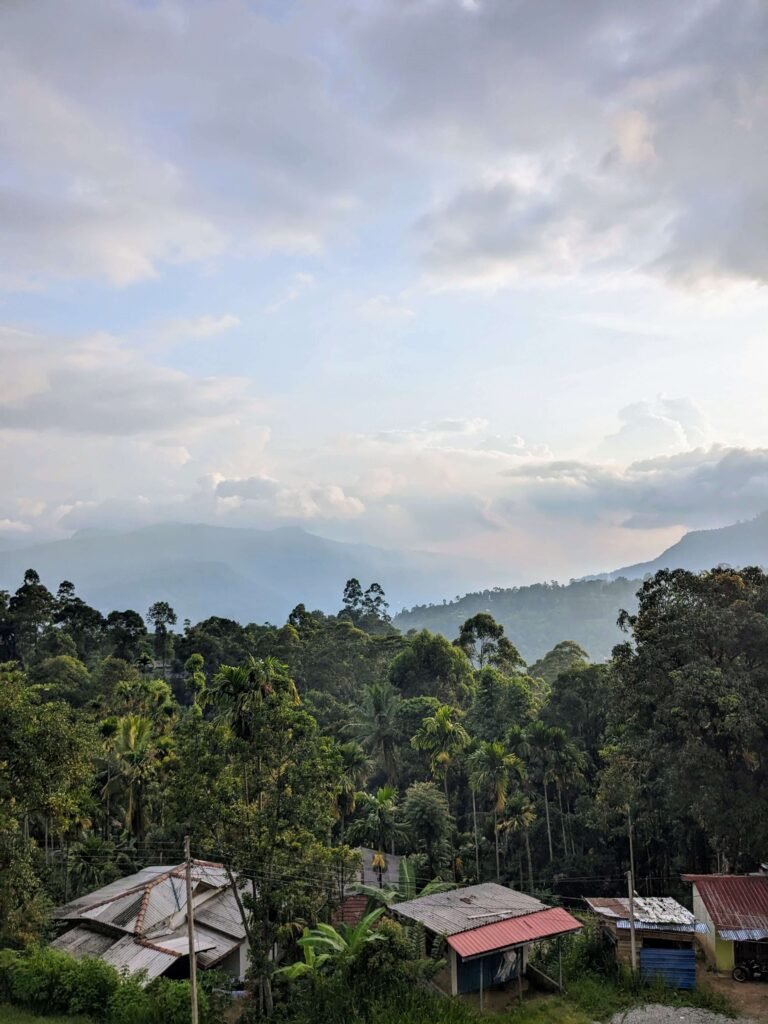

Petty crime in Sri Lanka
As with any destination, there is a danger of being pickpocketed, especially in crowded places.
On a personal level, I never felt as though I was in any danger of this, and it should be noted that although pickpocketing is one of the most common crimes that will affect tourists, muggings and violent crimes against foreigners are very uncommon in Sri Lanka.
Like you would anywhere, remain vigilant and don’t flash your cash around.
I say this all the time, but common sense goes a long way in Sri Lanka, and everywhere else (see my safety tips for Asia for more!).
Terrorism in Sri Lanka
An Islamist terrorist attack targeted hotels and churches in Colombo, Negombo, and Batticaloa on 21st April 2019.
Over 250 people were killed in this tragic attack, and more than 450 injured.
While horrific, it is important to bear in mind that this was an isolated incident and does not represent daily life in Sri Lanka – there have been way more terror attacks in Europe over the last decade (including in my hometown of Manchester), and you don’t see me encouraging people not to travel in Europe.
While there is always a risk of a terror attack happening, this is more of a world issue than a Sri Lanka issue.
Is Sri Lanka safe for female travellers?
Is Sri Lanka safe for women?
More to the point, is Sri Lanka safe for solo female travellers?
I believe that many women are hesitant to travel to Sri Lanka because of the reputation that India has when it comes to sexual harassment.
I have no facts to back this up, but given that so many people get the two countries conflated, it seems like a reasonable assumption IMO.
Let me be very clear – although Sri Lanka is close in proximity to India, it is a completely different country.
Just like Canada and the US, India and Sri Lanka are not the same.
Now that that’s out of the way, I’ll say that I have known plenty of women who have travelled to India, and across the board, they report feeling uncomfortable with the stares and overall conduct of the men there.
I visited Sri Lanka with 5 women and not one of us ever felt uncomfortable on account of our gender.
We didn’t experience any staring or lewd comments.
On the contrary, the men seemed to be very uninterested, usually not even glancing up as we walked by!
Of course, we were in a group, so solo female travellers might attract more stares, but it will be more out of curiosity than malintent.
There have unfortunately been some incidents of drink spiking in touristy areas and beach resorts in the South of the island. Just like you would anywhere, don’t accept drinks from strangers, never leave your drink unattended, and always watch your drinks being poured.
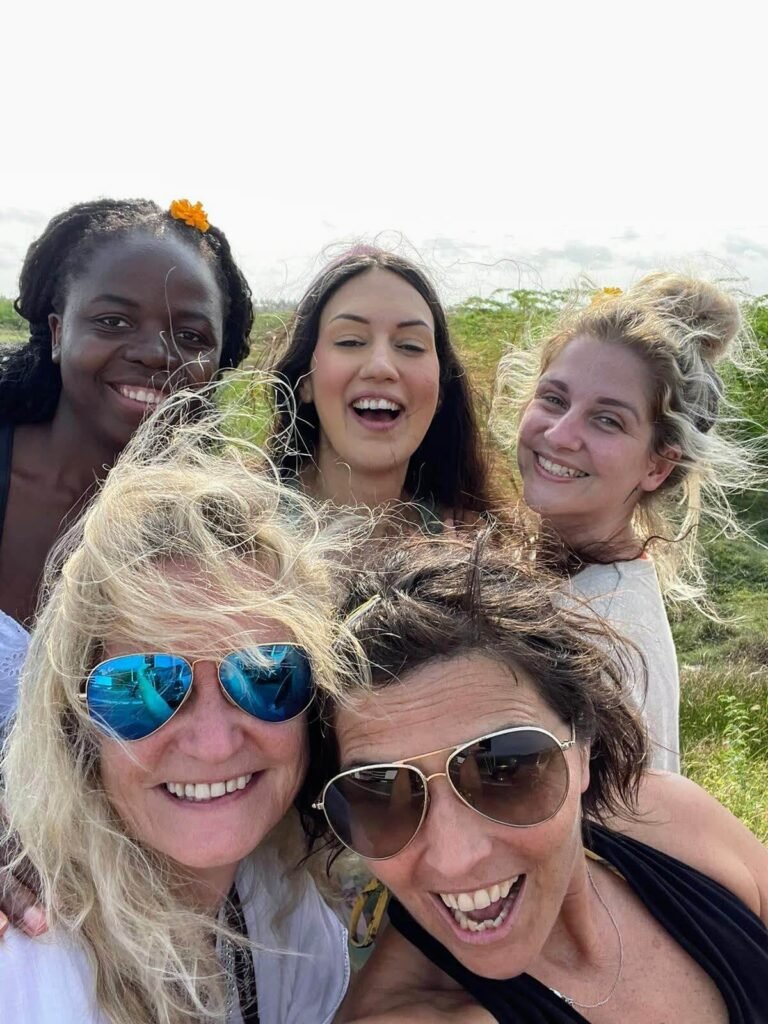
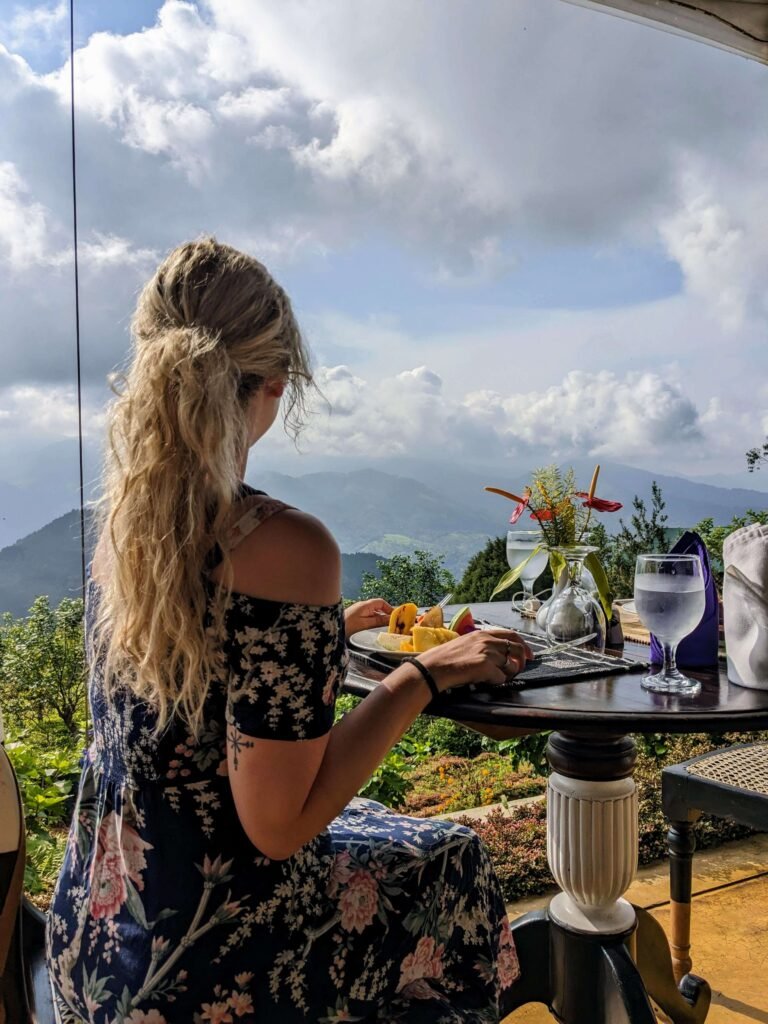
Health risks in Sri Lanka
Insect-borne diseases
Dengue fever is present in Sri Lanka, especially in the monsoon season.
Other insect-borne diseases like chikungunya, Japanese encephalitis, malaria, and filariasis are also found in Sri Lanka, and you should make sure to arm yourself with mosquito and insect repellent to keep safe in Sri Lanka.
The risk of all these diseases is very low, but mosquito-repellant is your best defense against contracting anything nasty.
Tap water
Tap water in Sri Lanka is not safe to drink and can contain nasties like typhoid, hepatitis, and leptospirosis.
Be sure to only drink bottled or filtered water while in Sri Lanka, and unless you’re in a fancy hotel or upscale restaurant, I’d stay away from ice as well.
Remember that if you get an upset stomach in Sri Lanka, it’s much more likely to be from the salad washed in tap water than in cooked meats or vegetables.
Dangerous animals in Sri Lanka
Although rare, you should be aware of the threat of rabies in Sri Lanka, which can be transmitted by stray dogs and cats, monkeys, and bats.
Sri Lanka dangerous animals also include poisonous snakes and wild elephants, but the risk from them is really very low.
Here’s what you (maybe) need to know:
Poisonous snakes are not likely to be found around hotels or tourist spots, but if you go trekking through jungles or paddy fields (specifically Sinharaja Rain Forest and Knuckles Mountain Range), you may be more at risk of an encounter, so be sure to hire a naturalist if you are set on trekking in those areas.
Remember that snakes don’t like humans and don’t like to be around them, and they will never intentionally get in your path.
When I lived in Cambodia, we were always told to stamp on the ground as we walked, so any snakes would feel the vibrations and slither off in plenty of time!
Chances are, the only snakes you’ll see in Sri Lanka are long black rat snakes, which are totally harmless (unless you’re a rat).
Wild elephants are also a potential hazard in Sri Lanka.
When we were driving down a rural road early in the morning, we encountered a wild elephant who was acting territorial about his patch of road. Our guide knew exactly what to do, but it was certainly a dicey situation.
If you encounter a wild elephant on the road, always retreat. Don’t be stupid and try to get closer for the sake of a photograph.
Swimming in Sri Lanka
The beaches in Sri Lanka are stunning, and it’s very tempting to get in the water and swim.
If you want to swim at the beach in Sri Lanka, be aware that there can be very strong surf and rip tides at certain times of year, and a small number of foreigners drown in Sri Lanka every year.
Always ask the locals if it’s safe before getting your feet wet!

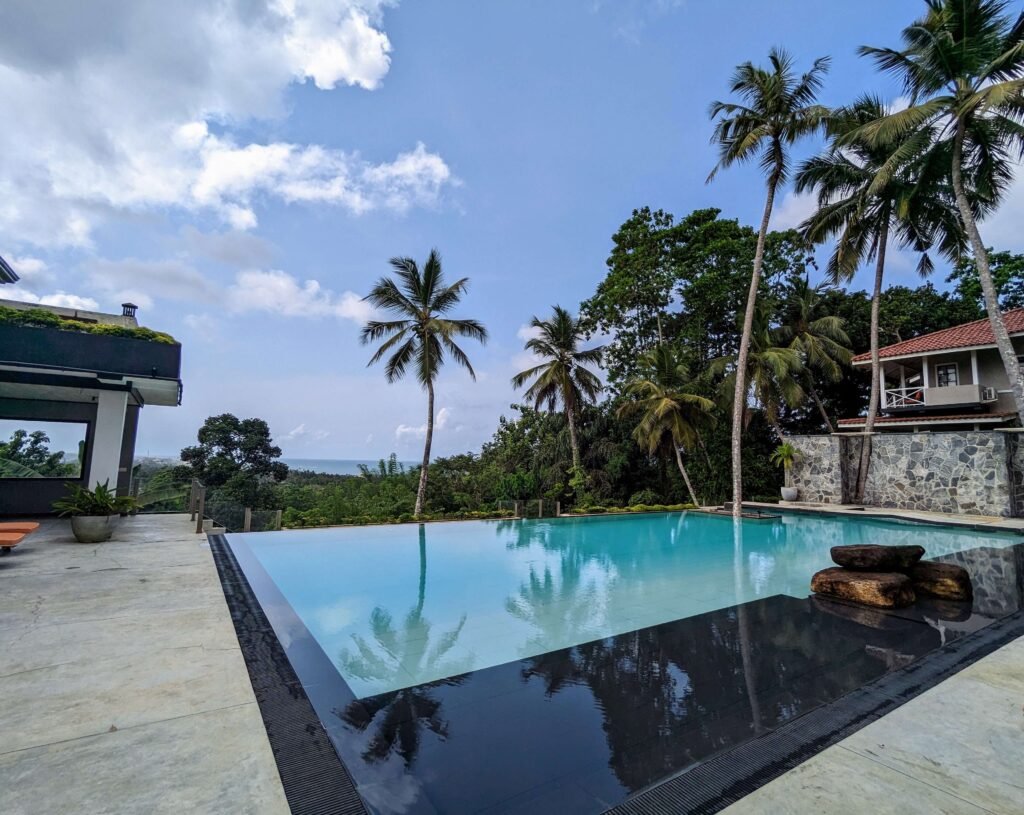
Is Sri Lanka safe for Black travellers?
Sri Lanka is very safe for Black travellers, but you may find that you are seen as a ‘novelty’ and asked questions that we would deem inappropriate in the West. If you are a Black woman, you may also get people trying to touch your hair without asking.
I travelled to Sri Lanka with my friend Illy from Illyana London, and she felt frustrated and uncomfortable when people kept pointing out the fact that she was Black (as if she didn’t know), and asking for pictures with her.
There is no hostility or ill-intent on the part of Sri Lankans – unlike many other countries, Sri Lanka doesn’t really have a multicultural society, and so ethnic differences are something that some Sri Lankans find interesting and curious.
Regardless, of intent though, this is something that can get tiresome, and while it won’t bother some people, it will bother others, and both reactions are valid.
As a white person, I hesitate to speak further on this issue, so I’m going to quote my friend Roobens, who has published a book about Black travel:
Grown up adults become big kids and keep staring at you. It’s not racism, just curiosity. They’re not used to seeing black people (or white people, etc…). On TV, on the internet, in the magazines, yeah, but with their own eyes, in the street!? The ‘rarer’ you are, the more people will stare at you. In Central Asia, a lively restaurant got more silent than a cathedral in a few seconds when I got in. Every single person was staring at me! – You can read the full article here.
I’m used to all those little things now: people staring at me in the street, locals asking for pictures, comparisons with black celebrities (“Hey! You look like Paul Pogba!” yeah…), stereotypes (“Hey wassup bro? How you doin homie?“) – You can read the full article here.
Roobens’ point about being a rarity is something I can even relate to – I lost count of the number of times people asked to take photos with me in Vietnam on account of my light skin and blonde hair!
Is Sri Lanka safe for LGBT+ travellers?
When I visited Sri Lanka, a couple of my LGBT friends told me that they would never go because homosexuality is illegal in Sri Lanka.
This shocked me, so as soon as I got home, I did my research, and fortunately, this isn’t quite as it seems.
It is true that homosexuality is still criminalised under the 1883 Penal Code.
However, this law comes from British Colonial times, and colonial law does not permit the Supreme Court in Sri Lanka to repeal laws.
The Supreme Court in Sri Lanka may not have the power to remove laws outright, but it has ruled that this law against homosexual activity is ‘unenforceable,’ and stated in 2017 that it would be inappropriate to impose custodial sentences on people accused of engaging in homosexual sex.
Not only that, but in August 2022, there was a bill submitted to Parliament aiming to repeal the colonial-era law, and it is likely that it will be passed, with the President of Sri Lanka, Ranil Wickremesinghe, saying ‘we are for it.’
Sri Lanka has also held Pride celebrations since 2004, so although yes, technically homosexuality is illegal in Sri Lanka, this is an antiquated law that is on the way to being abolished, and it is has been officially ruled ‘unenforceable.’
One piece of advice I would give to same-sex and hetero couples visiting Sri Lanka is to be discreet – Sri Lanka is a very conservative country that frowns on all kinds of PDA, regardless of gender.
Sri Lanka safety tips
I hope that by now, you feel reassured that Sri Lanka is a very safe country to visit!
Fear-mongering by the media is the main reason why people are scared to visit Sri Lanka rather than any real threat, and the biggest danger posed in Sri Lanka comes from mosquitos (which are everywhere!).
Here are some general Sri Lanka safety tips that you can follow:
- Avoid areas where public demonstrations are taking place, as protests always have the potential to become violent.
- Flooding and landslides are common in Sri Lanka during the monsoon season. In the northeast, this runs from December to March, while in the southwest, it stretches from May to October. It’s crucial to stay prepared and flexible if you’re travelling to Sri Lanka during monsoon season.
- Get travel insurance before you travel so that you’re covered if anything bad happens, from theft to vehicle accidents. I recommend SafetyWing.
- Carry mosquito repellant. I always use Avon Skin So Soft. Mosquito repellant bracelets are also a good idea.
- Speak to your healthcare provider about any vaccines you may need before you travel to Sri Lanka. Here is a list of vaccines and boosters you may want to consider.
- Stray dogs in Sri Lanka are very friendly but exercise caution when petting them.
- Don’t engage in public displays of affection.
- The legal drinking age in Sri Lanka is 21.
- Respecting local customs and religious practices is crucial, especially when it comes to Buddhism. This includes actions such as posing for photos with Buddha statues or having tattoos, clothing, or jewellery representing Buddha. You should be sure to dress modestly when at temples, which involves covering your shoulders and knees.
- Always seek local advice before going swimming to be sure that the currents are not too strong.
- If you take the famous Kandy-Ella train and want to get one of those shots hanging out of the door, be careful! This is a real train that is going fast, and if you fall, you die.
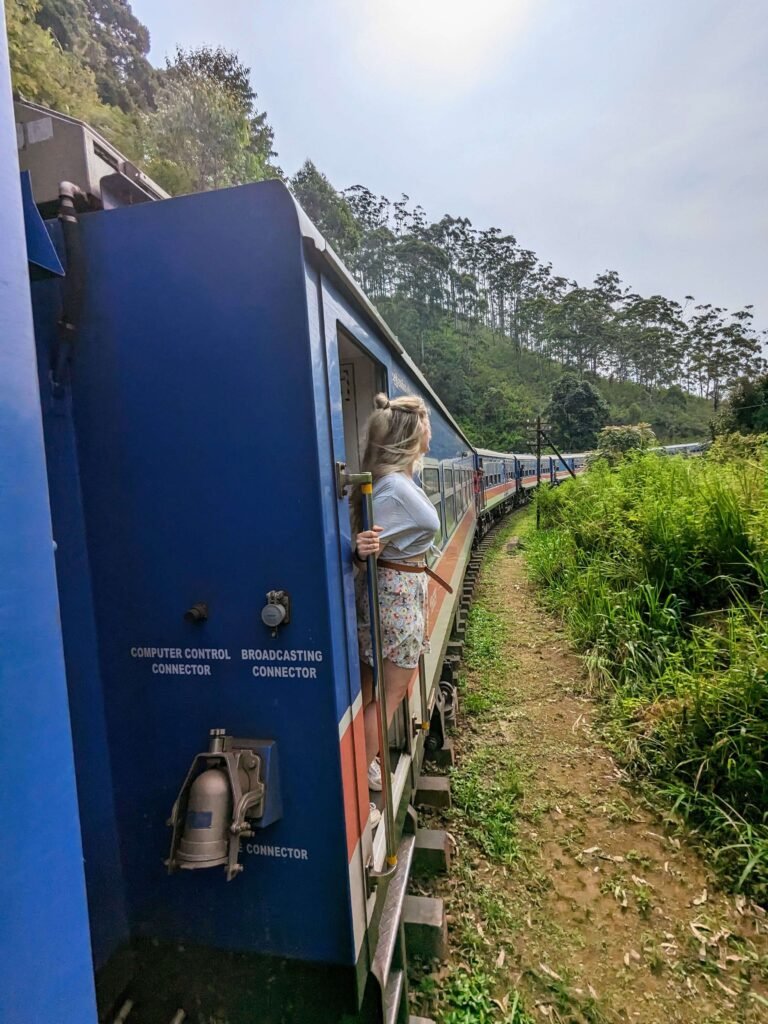

Why now is the time to book your Sri Lanka vacation
Sri Lanka is how I imagine Bali to have been before mass tourism descended on it, and if the tourism board’s promotion efforts are successful, Sri Lanka won’t be ‘off the beaten path’ for long.
I believe that now is the best time to visit Sri Lanka, and in 20 years, when it’s overrun with tourists, you can tell everybody that you visited at a time when Sri Lanka was still authentically Sri Lanka.
Here are some more reasons why you should visit Sri Lanka right NOW:
- 1 in 8 Sri Lankan families depend on tourism to survive.
- Your money will stretch much further at the moment due to the fall of the Sri Lankan rupee.
- Sri Lanka tourism hasn’t recovered from the pandemic, and so you can enjoy all of the beaches and touristic sites undisturbed. Even Yala National Park is operating way under capacity at the moment.
- Most hotels in Sri Lanka have kept their prices at pre-pandemic levels, while the rest of the world has increased prices by 20-30%. Many hotel groups, such as Jetwing, kept on all of their staff throughout the pandemic. This not only provided support to staff at a much-needed time, but also ensured that they were able to maintain their high standards. I stayed at several Jetwing properties during my time in Sri Lanka and definitely recommend them!
- Sri Lanka has the best big-game safaris outside of Africa, and they’re also super affordable. If you want to see some incredible animals in the wild, Sri Lanka is for you.
- People in Sri Lanka are some of the friendliest and most hospitable I’ve come across in all my years of travel.
- Wellness and luxury travel is growing in Sri Lanka, with many hotels offering spa and Ayurvedic treatments at low costs.
- Sri Lanka is a very sustainable destination, so if you’re looking to reduce your carbon footprint, you’ll be right at home here.
Is Sri Lanka safe? | Final Thoughts
So, how safe is Sri Lanka?
I hope I’ve managed to show that Sri Lanka is not only safe, it’s one of the safest places to visit in Asia.
Having travelled extensively through Asia, I also consider Sri Lanka a great introduction to this part of the world if you’ve never been before.
Sri Lanka is less chaotic and intimidating than India, equally as beautiful as Thailand and Vietnam, and it offers all the spiritual and health benefits of Bali, but without the crowds.
What’s more, tourists are only just beginning to return to Sri Lanka, meaning that now is the time to enjoy the best hotel deals, have the beaches all to yourself, and bring those much-needed tourist dollars to this island nation.
That’s about it for today, but as always, if you have any questions then don’t hesitate to reach out in the comments section below!
Until next time,
XOXO
If you like this article and would like to support my work, please click the button above to donate a couple of bucks and buy me a coffee. The revenue that I receive on this website is minimal, so support from my readers enables me to keep creating content that you (hopefully!) love to read.

Thank you for your very helpful information. I have just arrived in Sri Lanka & it is amazing, friendly, & the food & accommodation amazing. Everyone speaks English, nothing is a problem they are so helpful, & very much appreciate when you use some of their words. They are very spiritual & wellbeing aware. I would highly recommend this country
Glad you found it helpful! Thanks so much for commenting 🙂 I agree, Sri Lanka is a wonderful country.